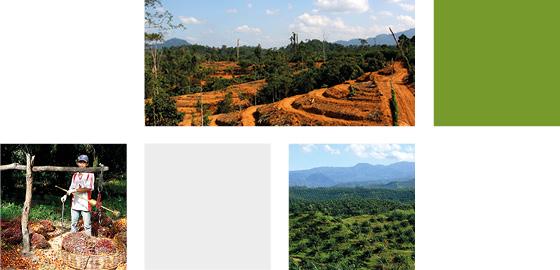Sustainable Management of Ecosystems for the Provision of Ecosystem Services

This thematic module focuses on how ecosystems can be used sustainably for reducing poverty and how negative environmental influences can be reduced within the context of sustainable development.
Portrait
Ecosystems encompass all land- and water-based natural and semi-natural systems, as well as the associated resource use systems. They provide a broad range of ecosystem services on which human well-being highly depends. Ecosystems are affected in turn by human-induced indirect and direct drivers. Over the last five decades, humans have increasingly changed ecosystems to meet rapidly growing demands. This has resulted in rapid changes in ecosystems, including a substantial and largely irreversible loss and degradation of natural resources and biodiversity. There have been substantial gains in economic development and human well-being. However, not all regions and people have benefitted from these gains.
The success or failure of any scheme of sustainable ecosystem management will not depend on any single factor but rather on a combination of mutually reinforcing policies, investments and actions. Understanding the key drivers, their interactions and the policies that can drive and promote good practices will be based on a judicious mix of global, regional, national and local actions. An understanding of optimal policies and actions would provide important information for policy makers, donors and activists. This thematic module, therefore, seeks to support innovative inter- and transdisciplinary research collaborations that aim to develop methodologies, technologies, approaches or concepts that improve and enhance the sustainable and equitable provision of ecosystem services for human well-being, with a particular focus on the poor in developing and emerging countries.
Schedule
$(document).ready(function() {
/*
* Simple image gallery. Uses default settings
*/
$('.fancybox').fancybox();
/*
* Different effects
*/
// Change title type, overlay closing speed
$(".fancybox-effects-a").fancybox({
helpers: {
title : {
type : 'outside'
},
overlay : {
speedOut : 0
}
}
});
// Disable opening and closing animations, change title type
$(".fancybox-effects-b").fancybox({
openEffect : 'none',
closeEffect : 'none',
helpers : {
title : {
type : 'over'
}
}
});
// Set custom style, close if clicked, change title type and overlay color
$(".fancybox-effects-c").fancybox({
wrapCSS : 'fancybox-custom',
closeClick : true,
openEffect : 'none',
helpers : {
title : {
type : 'inside'
},
overlay : {
css : {
'background' : 'rgba(64,64,64,0.85)'
}
}
}
});
}); .fancybox-custom .fancybox-skin {
// box-shadow: 0 0 50px #222;
}
body {
max-width: 1356px;
margin: 0 auto;
}Review Panel
- Ian Johnson, former Vice President World Bank, United Kingdom (Panel President)
- Professor Dr. Stuart Lane, University of Lausanne, Switzerland (National Research Council Delegate)
- Dr. Claude Martin, International University in Geneva, Switzerland
- Mr. Michael Ochieng Odhiambo, People, Land and Rural Development, Kombewa, Kenya
- Dr. Patrick Sieber, Focal point of the Climate Change and Environment Network, Swiss Agency for Development and Cooperation, Berne, Switzerland (SDC Delegate)
- Professor Dr. Esther Turnhout, Wageningen University, The Netherlands
- Professor Dr. Peter Verburg, VU University Amsterdam, The Netherlands
Research Network
The projects in the thematic module Ecosystems started in 2015. They represent transnational research partnerships between 10 countries and Switzerland, involving 31 grantees.
Events
r4d Forum 2015 Ecosystems and Food Security, Filzbach, Switzerland, 18-19 March 2015
News
